We’ve all experienced the woes of time management at work. You wake up hopeful and optimistic—not only will you meet all your deadlines, but you’ll hit the gym and make a healthy home-cooked meal, too.
Then life happens. You leave late, you hit traffic, and you arrive at your desk already frustrated with the world. Sitting down to finally knock out that project you’ve been procrastinating for weeks, you realize you’ve got back-to-back meetings until noon—and yes, you’re already late for the first one. You finally walk out of the last meeting, and you start wading through emails when you get pulled into a meeting with the VP. He has a last-minute request for you. “It should only take an hour,” he says. Try three.
The good news is that there are ways to reclaim those seemingly elusive lost hours of the day. It’s all about personal time management—manage your time instead of letting it manage you.
1. Figure out How You’re Currently Spending Your Time.
If you’re going to optimize your personal time management, you first need to figure out where the time is going.
- Determine how much you can feasibly accomplish in a day.
- Identify timesucks.
- Focus on activities that provide the greatest returns.
2. Create a Daily Schedule—and Stick with It.
This step is absolutely crucial for learning how to manage time at work. Don’t even attempt starting your day without an organized to-do list. Before you leave work for the day, create a list of the most pressing tasks for the next day. This step allows you to get going as soon as you get to the office.
3. Prioritize Wisely.
As you organize your to-do list, prioritization is key for successful time management at work. Start by eliminating tasks that you shouldn’t be performing in the first place. Then identify the three or four most important tasks and do those first—that way, you make sure you finish the essentials.
- Important and urgent: These tasks have important deadlines with high urgency—complete them right away.
- Important but not urgent: These items are important but don’t require immediate action and should involve long-term development strategizing. Strive to spend most of your time in this quadrant.
- Urgent but not important: These tasks are urgent but not important. Minimize, delegate, or eliminate them because they don’t contribute to your output. They are generally distractions that may result from the poor planning of others.
- Urgent and unimportant: These activities hold little if any value and should be eliminated as much as possible.
4. Group Similar Tasks Together.
Save yourself time and mental energy by trying to complete all of one type of todo before moving on to the next. For example, create separate chunks of time for answering emails, making phone calls, filing, etc. Don’t answer emails and messages as they come in, as doing so is distraction at its finest. Turn off your phone and email notifications to completely eliminate the temptation to check at an unappointed time.
5. Avoid the Urge to Multitask.
This is one of the simplest time management tips for work, yet it can be one of the hardest to follow. Focus on the task at hand and block out all distractions. It can be tempting to multitask, but you’re just shooting yourself in the foot when you attempt to do so. You lose time and decrease productivity when switching from one task to another.
Similarly, don’t get overwhelmed by a to-do list stretching a mile long. Stressing over it will not make it shorter, so breathe in, breathe out, and take it one task at a time.
6. Assign Time Limits to Tasks.
Part of creating your schedule should involve setting time limits on tasks instead of just working until they’re done. To-do lists are great and wonderful, but sometimes you might feel like you never check anything off.
If you’re looking to set a steady pace to your workflow, the Pomodoro Technique can help you check off your to-do list in 25-minute chunks, taking short breaks between each stint and a longer break after completing four. This technique balances a narrow focus with frequent breaks, reducing mental strain and maintaining motivation.
The designated amount of time on that task, move on to the next important activity. You’ll find your productivity skyrocketing and your to-do list shrinking when you have these parameters in place.
7. Build in Buffers.
One of the more enjoyable time management tips for work: Make breaks a part of your schedule. When you finish a task, give yourself time to breathe. Take mini-breaks to recharge, whether that be a short walk, a game of ping pong, some meditation, etc.
8. Eliminate Distractions.
Social media, web browsing, co-workers, text messages, instant messaging—the distractions at work can be limitless. A key to personal time management is being proactive about getting rid of them. Shut your door to limit interruptions. Close all tabs except the ones you are currently working on. Turn off messaging notifications and leave your personal phone calls for lunch.
Take baby steps. Identify your top two distractions and focus on conquering those for two weeks. And remember that getting enough sleep, drinking enough water, and eating healthily can all help you stay focused during the workday—especially when that afternoon slump hits.
Courtesy of Lucid Content Team











